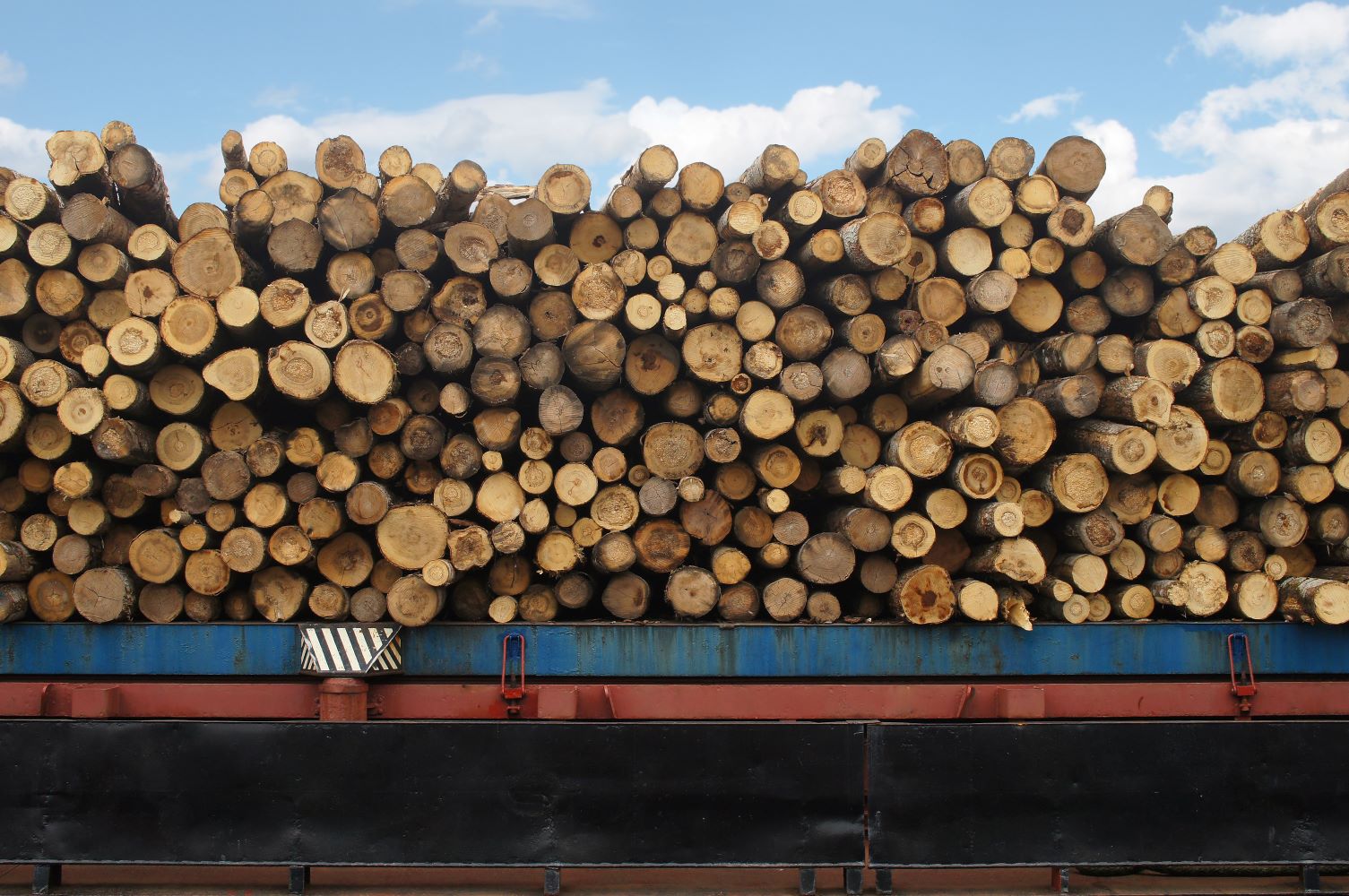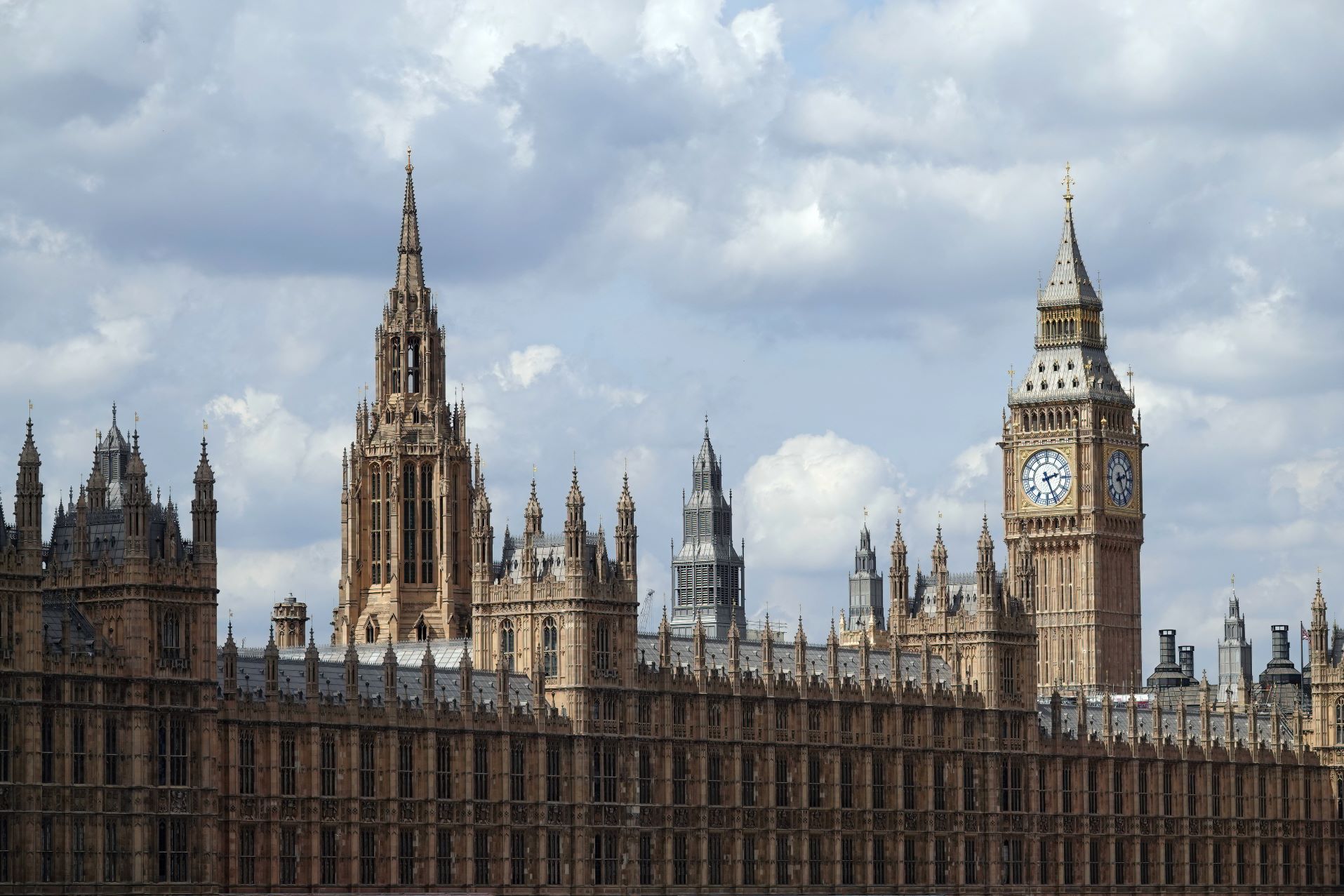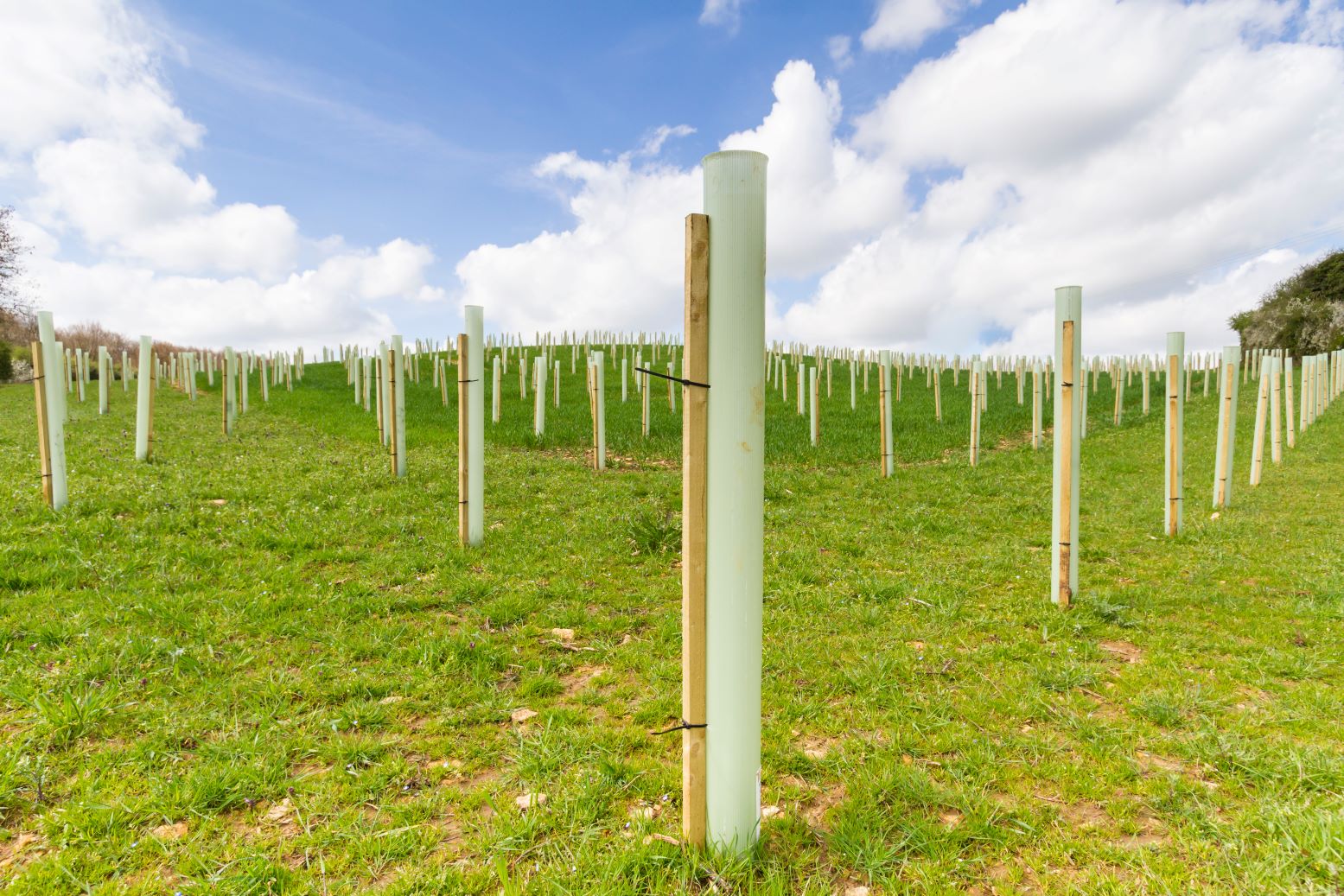Woodsure and sustainability: looking to the future
24 June 2024
As the UK’s only wood fuel quality assurance scheme, Woodsure plays a part in the UK’s energy system. The general domestic and non-domestic fuel markets are large and diverse – there are a number of key areas for discussion. Importantly, the market strives to maintain a sustainable fuel provision model for the UK as well as pushing ever harder to ensure that the fuel itself is of a sustainable nature. This article examines the importance of sustainability in respect of our role in the wood/biomass fuel supply sector.
The domestic wood fuel sector is served by approximately 2 million existing stoves and stove/boilers that have been installed over the course of many years, with legislation evolving and tightening over time. Domestic fuels are predominantly wood logs but can also be pellet, chip, wood briquettes, and innovative new products as the industry evolves. Most of the freestanding biomass boilers and some wood-burning cookers across the domestic wood fuel sector were installed with financial support from the now-ended Domestic Renewable Heat Incentive (RHI) and generally utilise pellets as fuel.
Domestic solid fuel legislation (in England thus far and likely in devolved nations in the future) already controls the sale and burning of domestic wood fuels. This is to minimise the sale and use of poor-quality fuels that produce significantly increased emissions, including particulate matter, when burned. There is a possibility that the legislation could be tightened over time, but the government has so far stated that there is no intention to ban domestic burning.
Similarly, there are regulations and targets for the sustainability of wood fuel products. We have the Biomass Suppliers List (BSL) supported by various controls such as the Forest Stewardship Council (FSC) and Woodsure Approval to demonstrate sustainability and quality, and the UK Timber Regulations to demonstrate legality. The UK Timber Regulations aid in demonstrating that timber has been legally felled, where the Office for Product Safety and Standards (OPSS) are responsible for enforcement, but do not cover sustainability. Voluntary schemes such as the BSL, Woodsure, and the FSC are used to demonstrate sustainability, and this is enforced through membership. We have the framework to continue improving the sustainability (and quality) of domestic wood fuels.
In the non-domestic wood fuel sector, the range of fuels extends further, encompassing virgin timber in forms such as chip (and its variants), pellets (including torrefied pellets), waste wood, and other forms of biomass. The Non-Domestic RHI regulations were designed to support biomass use for twenty years – seventeen years of this support is still remaining.
Examining the sector, it is evident that existing government policy supports the use of large-scale biomass until 2041 at least, and there is no intention of banning domestic burning.
Understanding the challenges – and benefits – surrounding wood fuel is vital to keep industry moving forward whilst minimising its environmental impact.
Woodsure’s aim is to drive the ongoing improvement in wood fuel quality, enhancing sustainability. Our purpose is to improve the quality and sustainability of wood fuel whilst simultaneously educating businesses and consumers in responsible wood fuel sourcing and use. Woodsure engages with the industry – through our wood fuel quality and sustainability certification schemes we can promote cleaner burning and minimise the negative effects on our environment. Together we aim to expand the availability of quality wood fuel in the UK for a more sustainable future.
Woodsure
Woodsure was founded in 2009 by Andrew Harvey with sustainability and air quality at its core. Since then, Woodsure has grown and evolved. Remaining as the UK’s only wood fuel quality assurance scheme, Woodsure champions high-quality wood fuel through rigorous and comprehensive testing. Wood fuel quality is closely linked to sustainability and the energy industry, and even since Woodsure joined with HETAS in 2014, Andrew Harvey has remained the chair and been closely involved with the company’s sustainability efforts.
Recent conversations
Andrew Harvey recently spoke with Mark McAllister, Ofgem Chair, about the challenges and benefits of sustainability within their respective industries. This discussion prompted some interesting talking points as both industries continue to move forward in a changing landscape.
With the closure of the RHI and as the existing participant payments slowly come to an end (twenty years for non-domestic participants and just seven years for domestic), air quality and sustainability will remain an issue. The leverage that the RHI payments could make to ensure this will no longer be applied and the boiler owner could easily source the cheapest, lowest quality fuel to burn in their boilers. The BSL has been vital in allowing Domestic (and Non-Domestic with boilers under 1MW) RHI participants to demonstrate compliance with three primary requirements: land criteria (legality and sustainability), greenhouse gas emission reduction, and fuel quality. The ability to demonstrate compliance across these three criteria was deemed indispensable and forms the basis of Harvey and McAllister’s conversation on future initiatives.
Three wishes for the near future arose:
- Those who self-report to Ofgem to be given a route to communicate with the BSL and demonstrate their compliance with the three aforementioned criteria – this would assist in keeping the BSL viable as the years progress and remaining RHI participants dwindle.
- All biomass (not just woody) to comply with relevant fuel quality regulations – this will improve both air quality and appliance efficiency/lifetime.
- Those with waste wood exemptions to be required to demonstrate quality compliance directly to the BSL or Woodsure – currently those with waste wood exemptions are only required to provide evidence via the Environment Agency.
The input and expertise of Ofgem and Woodsure informed these wishes. Thinking ahead is essential when furthering sustainability and the BSL’s success regarding fuel quality was equally agreed to hold considerable importance when reviewing future projects.
These discussions shared similar themes with topics covered in the recent Ofgem online event ‘Clean, affordable, secure: a conversation about the future of the energy system’ that took place earlier this year. This event communicated Ofgem’s strategic thinking and the challenges the organisation faces within their work, with Mark McAllister speaking on how he intends to approach his newly appointed role. These challenges and possible approaches to solutions resonate with those within Woodsure. The online event highlighted three of Ofgem’s primary themes that build their strategic thinking: to protect, build, and change. These themes can be applied to a number of industries, including our own, to help shape innovation and drive change towards a more sustainable future.
Protect includes protecting the interests of consumers. From minimising emissions to promoting sustainable technologies and practices, protecting the environment is important and resonates with consumers and businesses alike. In addition, protecting fuel supply is important across industries, with a supply’s stability being integral to ensuring sustainability is a feasible, affordable option.
Build overlaps with many aspects of protect. Through the construction of an energy system that is as efficient as it is sustainable, utilising existing frameworks, stability that can further progress towards the goal of net zero is attainable.
Change involves addressing the overarching factors that inhibit progress and pose challenges. Changing the actions that lead to inefficiency and unsustainability (whilst still considering the other two themes of protect and build) is important for positive progress to be made.
Focus is placed on these themes in an effort to resolve the trilemma of energy price, energy security, and net zero. The three prongs of this trilemma are closely interlocked, with each influencing the other. Equally addressing all three themes is the challenge in finding affordable, safe, and sustainable solutions for the future.
There is a continued conversation about the sustainability advantages of UK grown timber – Grown in Britain is the UK scheme promoting locally grown timber and promoting its benefits. Woodsure and Grown in Britain have many mutual goals and aspirations and it is positive to see this initiative pursued.
Outside of RHI regulations, there is no legal requirement for sustainable wood fuel use – its use is entirely voluntary. Defra introduced Ready to Burn which came into force in England on 1 May 2021, banning the sale of wet wood for domestic use. This legislation could possibly extend to commercial use and even outdoor burning, subject to the appropriate political and legal processes.
Future prospects
These recent discussions and ongoing developments have prompted further thoughts regarding the future – Ofgem’s plans wherein the three themes that construct their strategic thinking are important for many organisations across a range of industries to consider. Building sustainability that equally protects consumers, businesses, and the environment is not an easy task. Woodsure is one part of an extremely complex structure across many industries and we will continue to promote sustainability. Discussions and strategic thinking are integral to creating new, innovative solutions. The basic framework exists in our industry and whilst there is a way to go, Woodsure will keep using its role in wood fuel quality assurance to increase sustainability – protecting woodlands, the environment, wildlife, health, air quality, and much more.
Our industry must strive to maintain and enhance the UK’s existing woodlands. Increasing the management of the UK’s existing woodlands and encouraging new planting across the UK can increase our carbon stock, wherein carbon is captured within these woodlands and any timber products they produce.
There is still significant confusion around the sustainability of wood-based fuels and other products. Driving demand for the use of solely sustainable products is a challenge and one which Woodsure is working towards supporting into the longer-term future. Communicating the benefits of planting and managing woodlands sustainably is one step towards enhancing their benefits and increasing their coverage across the UK. This is a monumental task that will require much wider participation, but with the involvement of key stakeholders across the industry, we can increase the carbon capture, storage and biodiversity of our woodlands. Wood quality, biosecurity and fuel security are just a few of the tangible benefits that an increase in production from the UK’s managed forests can bring and are branches of a far-reaching network capable of providing benefits to all. Clarity behind sustainability and certification is one example of how consumers can be supported and enabled to purchase the quality product they want.
One piece of the puzzle of sustainability in our industry is wood fuel quality assurance. As the UK’s only wood fuel quality assurance scheme, Woodsure is poised to drive the sustainability of wood fuel. Providing certification that wood fuel is both high-quality and sustainable has ripple effects across the supply chain, encouraging certification and increasing its demand from end users.
Keep up to date on the latest Woodsure updates through our news pages or follow us on social.
Related news

Dutch sustainability scandal highlights the value of robust wood fuel certification

Emma Reynolds appointed as new Defra Secretary in Cabinet reshuffle

Government eradication successfully prevents tree pest from posing major threat
